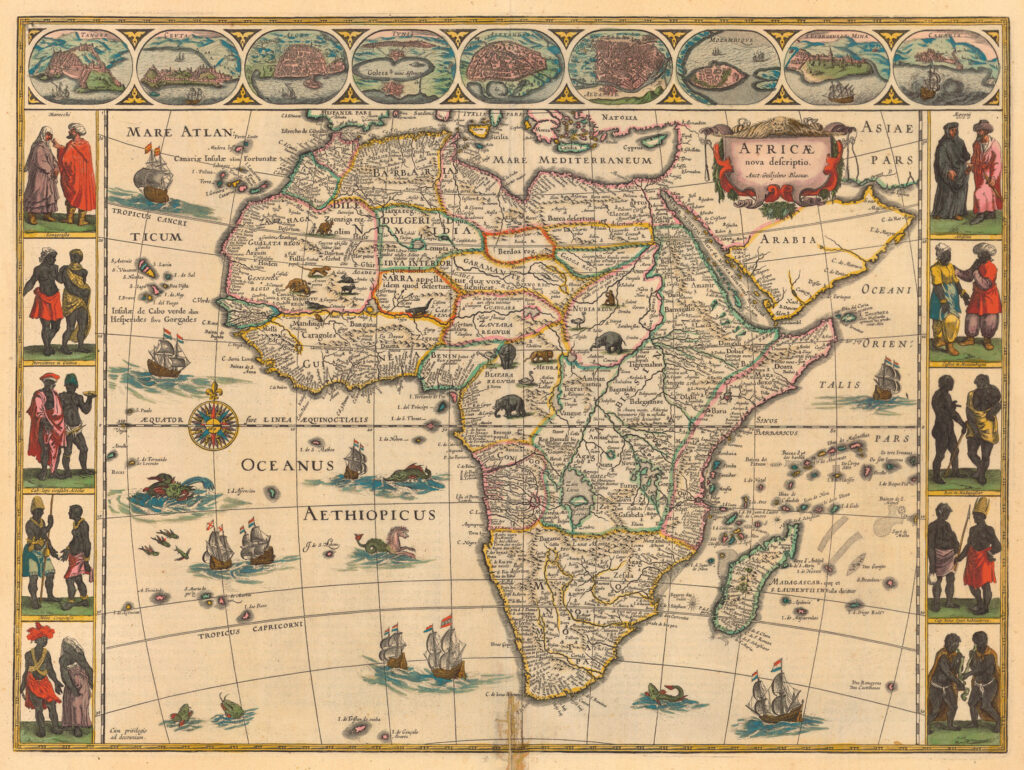
Over the years, the African continent has undergone significant transformations, as colonial powers imposed borders that often disregarded ethnic, linguistic, and cultural ties, leading to enduring challenges and conflicts.
Colonial Legacy: Imposing Borders, Shaping Nations
The late 19th and early 20th centuries saw a scramble for Africa as European powers sought to establish territorial control and exploit the continent’s rich resources. The arbitrary drawing of borders by colonial powers, such as Britain, France, Belgium, Portugal, and Germany, often divided ethnic groups and created nations with artificial boundaries.
This legacy of colonialism left African nations grappling with the consequences of imposed borders, fostering tensions and conflicts that persist to this day. The artificial division of territories and the merging of disparate ethnic groups into single entities laid the groundwork for complex political, social, and economic challenges.
Decolonization Movement: Striving for Independence
The mid-20th century marked a turning point as African nations embarked on the path to reclaim their sovereignty. The decolonization movement, driven by leaders like Kwame Nkrumah in Ghana, Jomo Kenyatta in Kenya, and Nelson Mandela in South Africa, sought to dismantle the shackles of colonial rule and establish independent, self-governing nations.
Between the late 1950s and the 1960s, a wave of independence swept across Africa, with many nations gaining autonomy from their colonial overlords. This transformative period saw the emergence of new political entities on the continent, each with its unique identity, aspirations, and challenges.
Contemporary Realities: Navigating Post-Colonial Challenges
While independence brought newfound freedom, African nations had to grapple with the enduring impacts of colonialism. The arbitrary borders continued to fuel conflicts, as diverse ethnic groups found themselves within the confines of single nations, often leading to internal strife and tensions.
Additionally, the economic legacy of colonial exploitation left many nations grappling with poverty, underdevelopment, and unequal access to resources. Decades after the end of formal colonial rule, African countries continue to navigate the complexities of building robust political systems, fostering economic growth, and addressing social disparities.
Future Prospects: Redefining Africa’s Political Landscape
As Africa stands on the cusp of the 21st century, the continent continues to redefine its political map. Efforts to address historical injustices, promote regional cooperation, and build resilient political institutions are underway. Organizations like the African Union (AU) seek to foster unity and collaboration among African nations, providing a platform for addressing shared challenges and pursuing collective development.
While the scars of colonization remain, Africa’s dynamic political landscape reflects resilience, determination, and a commitment to shaping a future that honors the diverse identities and aspirations of its people. As the continent navigates the complexities of post-colonial realities, the legacy of colonization serves as a reminder of the enduring spirit of independence and the ongoing quest for a more equitable and prosperous Africa.
